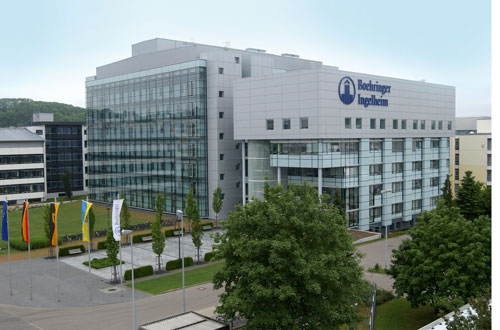
Boehringer Ingelheim’s big-selling respiratory drug Spiriva has started to feel the effects of generic competition.
The privately-held German pharma company said this morning that sales of Spiriva (tiotropium bromide) declined 16% to €1.45bn in the first six months of the year thanks to the loss of patent protection in a few markets. Overall, Boehringer saw sales rise 2% to €7.3bn and it is still expecting a slight increase for the full year compared to 2015.
The asthma maintenance and chronic obstructive pulmonary disorder (COPD) therapy is still protected in the US and other major markets until 2018, and Boehringer is hoping to migrate patients to new combination therapy Spiolto/Stiolto (tiotropium plus olodaterol).
Spiriva shared the bulk of the COPD market with GlaxoSmithKline’s Advair/Seretide (salmeterol and fluticasone) for years, but both drugs are facing competition from new entrants and the category is getting increasingly crowded.
The US FDA asked for more data on the combination in 2013 allowing new combinations from GSK and Novartis to reach the market in the interim, with another rival from AstraZeneca (AZ) – Bevespi (glycopyrrolate and formoterol fumarate) -approved in April.
While Spiolto may struggle to reach the heights achieved by Spiriva, Boehringer has brought a number of new products to market that it says “more than offset” the Spiriva reduction.
Diabetes sales rose 55% to €760m, driven by increased uptake of SGLT2 inhibitor Jardiance (empagliflozin) on the back of data showing it can reduce renal and cardiovascular complications, while Ofev (nintedanib) for idiopathic pulmonary fibrosis rocketed to €250m, a rise of 166%.
Boehringer’s second biggest seller, the novel oral anticoagulant Pradaxa (dabigatran), continued to grow well, rising 6% to €650m, boosted by the approval of reversal agent Praxbind (idarucizumab).
The availability of an antidote gives it a safety advantage compared to other NOACs, namely the Factor Xa inhibitors Xarelto (rivaroxaban) from Bayer and Johnson & Johnson (J&J), Pfizer/Bristol-Myers Squibb’s Eliquis (apixaban) and Daiichi Sankyo’s recently-approved Savaysa (edoxaban).
Partnering key
Boehringer’s chairman Hubertus von Baumbach said that the company has made considerable progress in the last months – it has bounced back from a loss in 2014 – but suggested it must continue to look to external opportunities to enrich its pipeline.
“Future success in our core business prescription medicines will depend on how successfully we can establish ourselves as a partner of choice – from preclinical research right through to patients,” he said.
To that end, Boehringer is in the throes of a major restructuring of its businesses. The company has already sold its US generics business Roxane Labs, and in June signed a contract to swap Sanofi’s animal health business Merial with its consumer health care business – sales of which rose 5% to €750m in the first half.
Boehringer has also embarked on a restructuring of its human pharmaceuticals and innovation corporate board divisions, eliminating around 725 jobs in the US.




